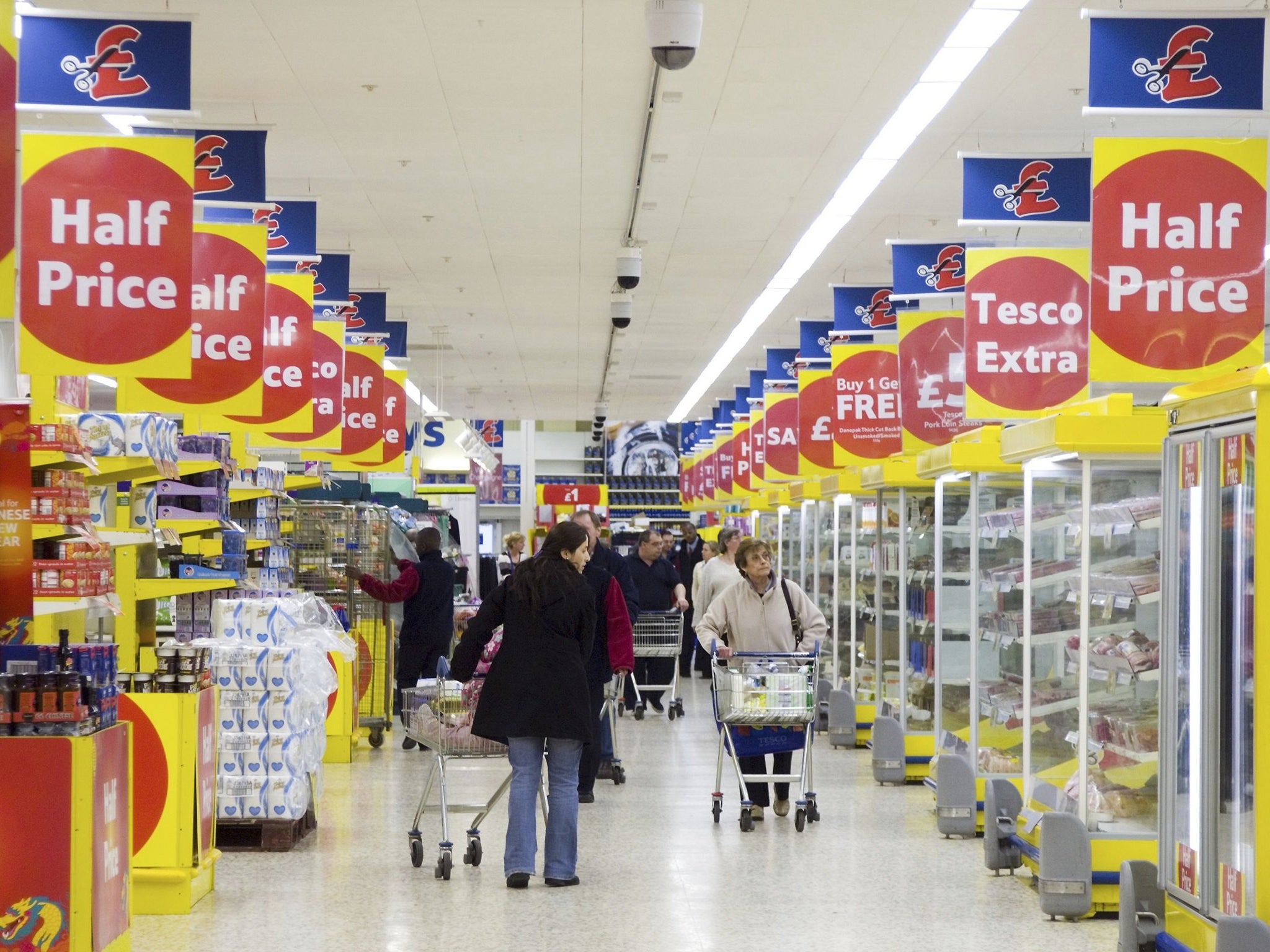A long shopping list to plug a leak
With profits down and online trading outdoing hypermarkets, Tesco’s new chief executive Dave Lewis would do well to study M&S’s mistakes to get back on track

Your support helps us to tell the story
From reproductive rights to climate change to Big Tech, The Independent is on the ground when the story is developing. Whether it's investigating the financials of Elon Musk's pro-Trump PAC or producing our latest documentary, 'The A Word', which shines a light on the American women fighting for reproductive rights, we know how important it is to parse out the facts from the messaging.
At such a critical moment in US history, we need reporters on the ground. Your donation allows us to keep sending journalists to speak to both sides of the story.
The Independent is trusted by Americans across the entire political spectrum. And unlike many other quality news outlets, we choose not to lock Americans out of our reporting and analysis with paywalls. We believe quality journalism should be available to everyone, paid for by those who can afford it.
Your support makes all the difference.Friday’s profit warning at Tesco guaranteed that every conceivable expert would be wheeled out over the weekend to offer advice to incoming chief executive Dave Lewis, and so it turned out. But what was equally apparent is that these experts were as confused as the Tesco board about what might be done to restore the supermarket group’s fortunes.
Some said it should slash prices to compete with discounters, others said it should reduce its range and stock far fewer products, a third group said it should be more upmarket in affluent areas; another lot said it was time to scrap Clubcard and others said it should sell-off overseas operations.
About the only common thread was that all the ideas would be disastrous – though each disastrous probably in a different way. You cannot cut your way to growth; but you can alienate and confuse a lot of your customers if you try.
It is all depressingly reminiscent of what happened when Marks & Spencer first stumbled some 15 years ago. Like Tesco under Sir Terry Leahy, M&S under Sir Richard Greenbury seemed able to do no wrong, and to have discovered the secret of eternally successful retailing. The only concern in those heady days was whether it or Boots would be the first high street retailer to report profits of £1bn.
But Sir Richard stayed at the helm too long and when the company faltered much of what had seemed so certain on his watch, no longer seemed to work.
The feeling grew that the business had been force-fed, and had overreached itself. Perhaps it had not invested adequately to anticipate changing times and was actually much weaker underneath the surface than it appeared. While from the outside it still looked impressive, inside it had been hollowed out.
The succession was also bungled, but by the time the board realised it had the wrong person in Sir Richard’s chair much more damage had been done, staff were demoralised, suppliers alienated, scores of good people had left and a flood of marketing initiatives confused the public even more. Customers no longer knew what the group stood for. What had started as a stumble turned into freefall.
Sound familiar? It should because Tesco has made many similar mistakes. But the point is that M&S has never recovered. It has survived as an independent firm – in contrast to Boots which was taken private and is now being taken over again by the American retailer Wallgreens – and it has some good things going for it.
But it has never come close to Sir Richard’s glory days when it had 15 per cent of the UK clothing market. Today, it achieves about half that and people wonder in a way they never used to before just what M&S is for.
It will be every bit as tough for Tesco because its local problems have hit it at a time the food retail industry is going through the biggest revolution since big supermarkets came to the UK in the 1960s. The problem is stark. For 50 years success in the sector has been about opening more and bigger outlets, but with the move to shopping online that has abruptly reversed.
Today, the more customers use the web, the less space the supermarkets need. Thus if 10 per cent of food shopping is done via the internet it means the sector has 10 per cent too much retail space.
Tesco could follow M&S on the slow road to obscurity by listening to the City and going for short-term fixes. There is, however, a more intriguing alternative. Its new boss, Dave Lewis, comes from Unilever and it may be that he will bring with him from that company the philosophy of its current leader Paul Polman.
Writing in the current issue of McKinsey on Finance, Mr Polman talks about how business needs to find its purpose and to develop leaders who can think long term and take investors, staff and customers with them. Business has to be part of the solution to the problems of society and boards must develop sustainable business models which support that.
Mr Polman’s drive to embed long-term thinking led him among many other things to stop giving short-term earnings guidance to investment analysts and to stop full reporting on a quarterly basis. It caused an 8 per cent drop in Unilever’s share price.
He did this, he said, because he needed to remove the temptation to work only towards the next set of numbers. That sounds exactly like a temptation Tesco urgently needs to avoid too.
Join our commenting forum
Join thought-provoking conversations, follow other Independent readers and see their replies
Comments